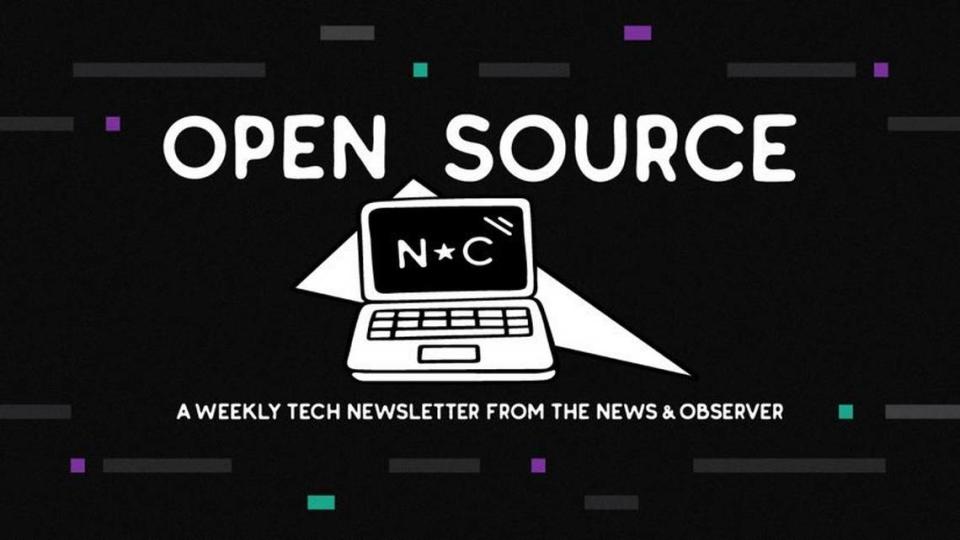Open Source: Boom without the boom? NC-bound jet company sees promise in NASA breakthrough
- Oops!Something went wrong.Please try again later.
I’m Brian Gordon, tech reporter for The News & Observer, and this is Open Source, a weekly newsletter on business, labor and technology in North Carolina.
Even at 60,000 feet, Concorde was loud. The pioneering supersonic passenger jet, which last flew in 2003, was so noisy that governments generally banned it from zooming at supersonic speeds over land.
This hampered Concorde’s commercial potential, explains Daniel Bubb, a former airline pilot who teaches courses on aviation at the University of Nevada, Las Vegas. But two decades later, a new NASA breakthrough has Bubb excited for the future of the industry.
Earlier this month, NASA showcased the X-59, an experimental plane that promises to break the sound barrier without producing earth-shaking sonic booms. One NASA administrator described the plane as making “a gentle thump.”
Budd says “we’re overdue for supersonic travel” and that cruising faster over land will save time and gas expenses for airlines — savings that can be passed to passengers. He expects NASA will license its innovative design with private sector manufacturers like Boom, which is building a large assembly plant at Greensboro’s Piedmont Triad International Airport.

Based in Colorado, Boom has committed to invest $500 million and employ more than 1,750 people at its North Carolina campus by the end of the decade. And the company projects its planes will begin transporting passengers in 2029.
“Boom will review and may leverage research from the X-59 project when it is available,” the company said in an email Thursday, adding the X-59 flight results will likely help inform international aviation noise standards.
Budd says going supersonic, no matter over ocean or countryside, will make the business more viable. But Boom asserts the supersonic passenger industry is already viable enough.
“Without changes to today’s overland flight regulations,” the company says it would only fly at supersonic speeds over water, and it has identified 600 “profitable and mostly transoceanic routes” for its projected jet, called Overture.

Overture’s anticipated overland speed of Mach 0.94 is about 20% faster than the speed of standard commercial jets. But over water, Overture plans to fly at Mach 1.7. Such speed, the company boasts, will allow the jet to travel from New York to Rome in less than five hours and from San Francisco to Tokyo in six.
In a quieter Overture, perhaps it could get more places quicker and cheaper.
Onto the rest of this week’s news:
Ariely shares details on Duke investigation into his work
An update on the drama swirling around prominent Duke University economist Dan Ariely, who has been under fire for possibly manipulating data in his past research on honesty.
In a feature published last week in The Chronicle of Higher Education, Ariely shared that Duke recently concluded a more than year-and-a-half investigation into his work, which focused on a now-retracted, multi-author 2012 paper that found having respondents sign honesty pledges at the start of self-reports — rather than at the end — made them more likely to answer factually.
Duke told The N&O it doesn’t comment on or even confirm the existence of any “research misconduct investigations,” so the following is only verified by what Ariely told The Chronicle:
According to Ariely, the university’s initial inquiry in 2022 discovered enough proof of misconduct to justify a more complete investigation.
The fuller investigation determined Ariely did insufficiently “vet findings and maintain records from the experiment in question,” he told The Chronicle, but he said Duke found no evidence he made up data.
After the initial investigation, the university stepped up oversight over the lab Ariely founded, called the Center for Advanced Hindsight. “Its training and data-management practices were examined by the administration, and Ariely was told to submit regular reports on research taking place at the center,” The Chronicle reported.
Ariely had to complete an eight-week course on professionalism and integrity in research at Washington University in St. Louis. The program, according to its website, teaches “decision-making skills, good lab leadership and management practices, and basic rules-of-the-road for the responsible conduct of research.”

Ariely remains Duke faculty and continues to lead the Center for Advanced Hindsight. I reached out to him for comment about the university’s investigation but have not yet heard back.
In August, he told me in a written statement: “To be explicitly clear, I have never manipulated or misrepresented data in any of my work and have never knowingly participated in any project where the data or conclusions were manipulated or misrepresented.”
Tech job openings decrease (almost) everywhere
North Carolina tech sector job openings fell 44% over the past 12 months, new data from the N.C. Technology Association shows.
Close to 20,000 vacancies last January became 11,146 openings by December, as “continued headlines of layoffs, hiring freezes, and economic uncertainty continued a downward trajectory for postings for 2023,” noted NC Tech’s Andrea Fleming in an email statement.
Fleming pointed out 2022 was a record year for tech openings. NC Tech, an industry group, broke down which NC markets saw big decreases last year. The short answer is almost all of them: Charlotte (-36%), Greensboro (-34%), Raleigh (-30%), Durham (-28%), and Winston-Salam (-24%).
The only North Carolina cities to see increases in tech job openings were Fayetteville (+3%) and Greenville (+17%).
According to the data, the top five hirers of North Carolina tech talent in 2023 were:
Deloitte
Wells Fargo (which anticipates layoffs in 2024)
Fidelity Investments
KPMG
First Citizens Bank (which last year purchased the failed tech-focused Silicon Valley Bank)

Quick bytes: IBM highlights real estate reduction
The Raleigh telecommunications company Bandwidth withdrew its commitment to add 1,165 new jobs at its impressive new Triangle headquarters. The company informed the state it wanted greater “flexibility” regarding where it hires.
Research Triangle Park startup Elo Life Systems raised $20.5 million to expand its production of no-calorie sweeteners. The company says it’s also working to “save the banana from extinction.”
IBM released earnings this week, and the company highlighted it is “reducing our real estate footprint.” Last month, IBM sold its 774,000-square-foot campus near RTP. For now, the company remains the complex’s lone tenant.

North Carolina State University opened a campus e-sports lab, including 35 gaming computers and a quartet of console stations.
Durham semiconductor Wolfspeed extended its silicon carbide wafer supply agreement with the German company Infineon Technologies. The news boosted Wolfspeed’s struggling stock this week.
A new fellowship from RTI International and the NACD Research Triangle Chapter has been named after the late Glaxo CEO (and prolific Porche collector) Bob Ingram.
And finally... Cary’s Epic Games announced Fortnite will return to Apple’s iOS in Europe this year, after Apple overhauled its App Store to comply with new European regulations. On the continent, Apple will permit users to use alternative app stores to download apps. Epic says it’ll distribute Fortnite through the Epic Games Store.
I discussed the ongoing Epic and Apple feud in last week’s Open Source. .

National Tech Happenings
Deceptive political deep fakes are here as an inauthentic “President Biden” robocall went out to New Hampshire voters.
Pokémon with guns. One of the most popular video games in the world right now, Palworld, is a more violent spin on Pokémon-esque characters.
Netflix’s subscriber worries may be over as the streamer smashed expectations with 13 million new sign-ups.
Thanks for reading


